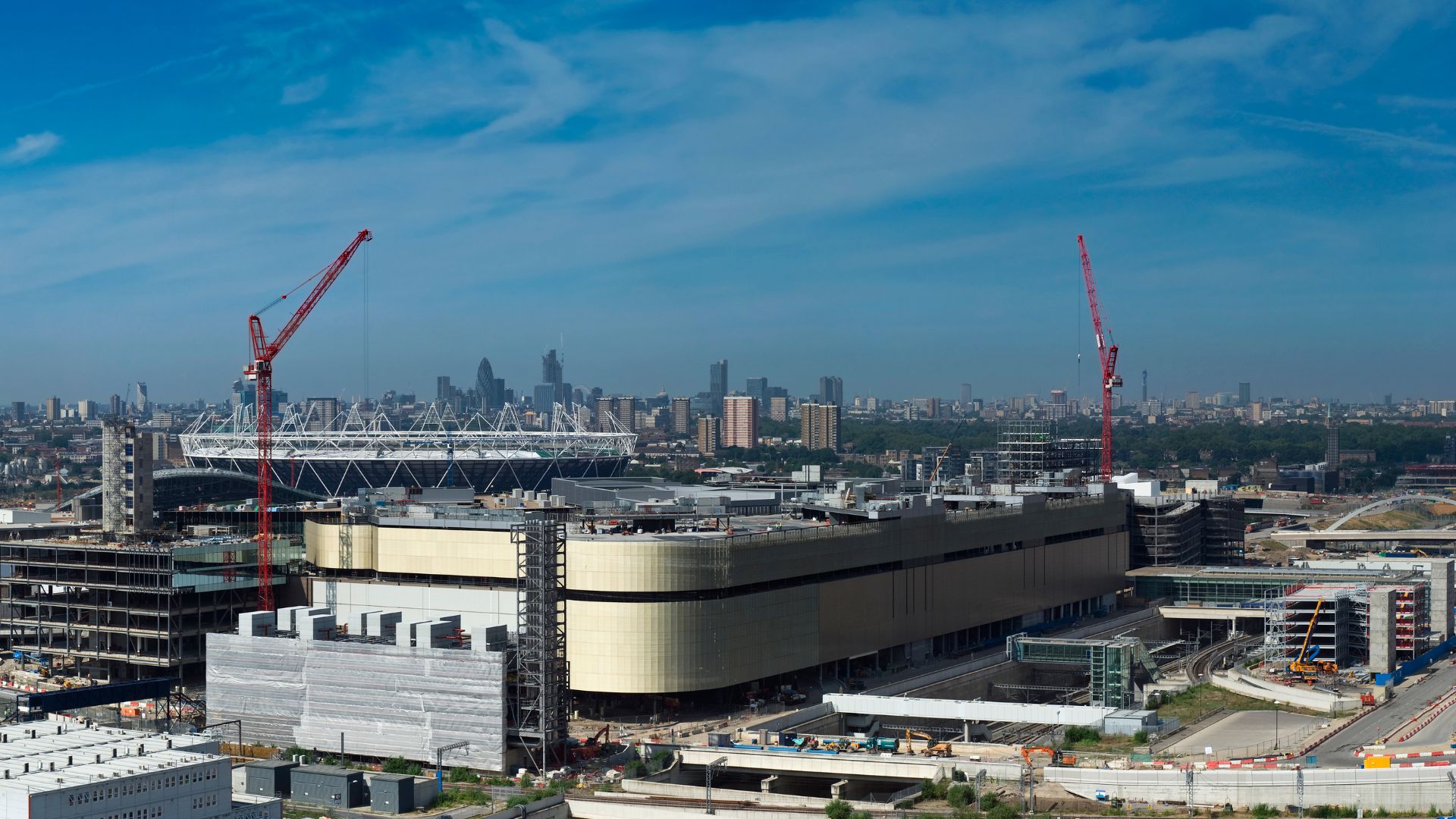How Can Urban Regeneration Reduce Urban Deprivation?
13 Nov, 20241-2 minutes
In this blog, you will learn:
- What urban deprivation is.
- The factors associated with urban deprivation.
- What urban regeneration is.
- How urban regeneration can reduce urban deprivation.
- Where the latest regeneration jobs are and how to apply for them.
As urban deprivation continues to be an issue amongst many communities across the UK, urban regeneration is crucial for mitigating the effects of such deprivation and closing the divide between the ‘rich’ and ‘poor’.
In our latest blog, we’re exploring the benefits of urban regeneration and how it can be used to reduce urban deprivation.
What is urban deprivation?
Urban deprivation is a term used to reflect the significant socioeconomic challenges that exist across many cities and communities. Describing a standard of living, below that of the majority in a society, urban deprivation refers to low-income households to whom the cost of living and limited access to important services can have a negative impact.
The main challenges surrounding urban deprivation include obstacles in being able to reach healthcare, increased rates of poverty, food instability and limitations within affordable housing. These issues can be particularly prevalent amongst vulnerable populations such as single-parent families, ethnic minorities and those with a mental or physical disability.
What factors are associated with urban deprivation?
There are a number of social, economic and environmental factors that can contribute to urban deprivation within a community.
Whilst inflation is dropping, it is still higher than previous years and as wages fail to meet the demands of the cost of living, essential household requirements such as food, heating and electricity are becoming less affordable for households across the UK. High inflation and stagnant wages only highlight the divide between the ‘rich’ and ‘poor’ further and drive more intense deprivation amongst urban areas and communities who might already be struggling to make ends meet.
The ongoing housing crisis, seen through rising rent costs and property prices, has resulted in some low-income households facing substandard living conditions or having to sacrifice in other areas such as food and heating.
Limited access to healthcare can also be linked to urban deprivation. Reduced healthcare facilities in some urban areas, due to a lack of funding and resources, might have contributed to increased waiting times and poor mental and physical health.
Urban deprivation can also be associated with a lack of educational opportunities, whereby schools in deprived urban areas may suffer from funding and resource shortages, which in turn might inhibit skill development and academic success.
What is urban regeneration?
Urban regeneration, sometimes also referred to as urban renewal, describes the act of using land redevelopment to address urban deprivation across cities and communities.
The aims of urban regeneration include tackling barriers to economic growth, creating opportunities for less affluent communities, helping to increase employment levels and ensuring that residents are happy and safe within the places they live and work.
With renovation and investment at the core of decision-making, urban regeneration is an important focus for many local authorities who wish to restore economic viability and close the gap between ‘poorer’ and ‘richer’ communities.
The government's Levelling Up Fund was created to tackle the economic and social differences that exist across different urban areas within the United Kingdom. The aim of the fund is to ensure that all regions have equal opportunities to prosper.
How can urban regeneration reduce urban deprivation?
Urban regeneration plays an important role in reducing urban deprivation and bridging the gap within social and economic inequality. Key ways in which urban regeneration reduces urban deprivation include:
- Reducing homelessness.
- Enhancing community services.
- Boosting economic opportunities.
- Reducing crime levels.
- Increasing educational opportunities.
Reducing homelessness
The aim of urban regeneration often includes developing affordable housing in order to combat the levels of homelessness seen throughout the UK. Housing shortages across deprived communities have led to housing insecurity for many and therefore urban regeneration must tackle the problem by creating affordable, high-quality housing that will provide low-income families with a safe space to live.
Through building new housing developments and renovating existing buildings, urban regeneration helps to prevent the displacement of residents and aims to create affordable housing and security for everyone.
Enhancing community services
Improving community services is an important part of urban regeneration. Whether it’s healthcare facilities, educational settings or community centred initiatives, these resources help to improve the quality of life for residents within a local community.
Urban regeneration must also help to make community services more accessible for everyone and ensure that there are no disparities between who can access services and how easy it is for them to do so.
Boosting economic opportunities
Should new businesses emerge through urban regeneration, this is crucial for the creation of new jobs and the reduction of unemployment within towns and cities across the UK.
Through attracting investments and increasing the number of local businesses, urban regeneration uses initiatives to support economic growth and create more employment opportunities that will give residents a better chance of improving their living standards.
Local business plays an important role in economic stability and investment in such businesses through grants and tax incentives can help to support a local economy.
Reducing crime levels
Measures put in place through urban regeneration are frequently used to improve safety within urban areas. For example, investment within police presence, better lighting and the upkeep of public spaces helps to create safe communities where criminal behaviour is discouraged.
Reduced crime rates help to build a greater sense of security amongst communities and attract more businesses and visitors which in turn supports the local economy and aids the reduction of urban deprivation.
Increasing educational opportunities
Urban regeneration is able to improve school and educational opportunities within local communities. Addressing educational inequalities is essential for mitigating urban deprivation and by providing opportunities for high quality education amongst young people or even mature students, this can help individuals qualify for better-paying jobs and break the cycle of deprivation.
Regeneration jobs
If you’re searching for your next interim regeneration job, why not take a look at the latest vacancies, or simply upload your CV to be notified when a relevant position becomes available.
Regeneration recruitment services
As regeneration recruitment specialists, we support local authorities and private sector businesses nationwide with their temporary, interim and permanent recruitment needs.
If you’re struggling to fill a vacancy, why not get in touch with our regeneration specialist, Chris Wilkinson on 01772 954200 to see how we can help?
Who is Spencer Clarke Group?
Established in 2017, we’re a vibrant and progressive recruitment agency based in the heart of the North West.
We continually reimagine the recruitment process to challenge convention and defy expectations; from creating a better recruitment experience to remodelling employee engagement, we thrive off doing things differently and turning heads along the way.
We operate in two sectors:
In eleven specialisms:
Healthcare, Social Care & Nursing
Corporate Functions & Business Support




